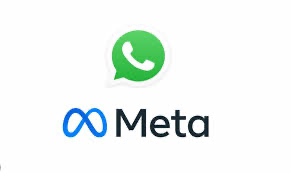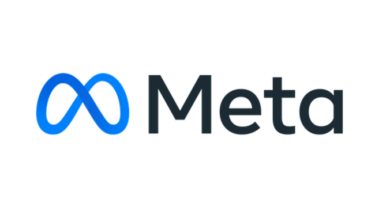
By: Ibraheem Muhammad Mustapha
WhatsApp, with its staggering over 3 billion monthly active users globally, has long cultivated an image as the most private corner of the internet, a sanctuary of end-to-end encrypted conversations free from the pervasive advertising that dominates its sister platforms, Facebook and Instagram.
This distinct identity has been central to its monumental growth and user loyalty since its acquisition by Meta (then Facebook) in 2014. However, what many current users might not recall is that WhatsApp wasn’t always entirely free. Until January 2016, users in many regions were required to pay a nominal $1 annual subscription fee after their first year to maintain a minimalist, ad-free experience. When Meta (then Facebook) scrapped this fee, it focus instead on generating revenue via businesses who communicate directly with users.
However, the era of an ad-free WhatsApp is drawing to a close. Meta recently confirmed plans to [re]introduce advertisements within the platform, strategically placed in the “Updates” tab (which includes Status and Channels). This pivotal shift has immediately ignited a global debate: does this monetization strategy, particularly its reliance on leveraging personal data from across the vast Meta ecosystem, cross the line into violating established privacy laws worldwide? This report examines the legal battleground surrounding Meta’s new WhatsApp ad plan, the arguments from privacy advocates, Meta’s counter-arguments, and highlight the intensifying regulatory actions in the ongoing clash between meta and global data protection authorities.
The Plan: Ads in Updates, Data from the Ecosystem
Meta’s strategy involves placing advertisements within WhatsApp’s “Updates” tab, a section reportedly used by as many as 1.5 billion people daily. These ads will appear in Status updates and within Channels content. Crucially, Meta maintains a firm stance that private messages and calls on WhatsApp will remain end-to-end encrypted and will not be used to target ads. This commitment is vital to maintaining user trust in the app’s core messaging functionality.
However, the nuance of the privacy concern resides in how these ads will be targeted. WhatsApp has stated it will use “limited info” such as a user’s country, language, the Channels they follow within the app, and how they interact with ads they directly see on WhatsApp. More significantly, if users have opted to link their WhatsApp account to Meta’s Accounts Center, an optional setting that is off by default and managed by the user, Meta will leverage their ad preferences and information from their other Meta accounts, including Facebook and Instagram, to personalize the ads shown in the WhatsApp Updates tab. Meta further assures that it will “never sell or share users’ phone numbers with advertisers”.
The Meta Ecosystem: Connecting Your Digital Dots
The integration of ads on WhatsApp, particularly the potential use of data from Facebook and Instagram, shows Meta’s overarching business strategy: to create a more unified and monetized ecosystem across its family of apps. For users who choose to link their accounts via the Accounts Center, this means that their interests, engagement patterns, and demographic information cultivated on platforms like Facebook and Instagram can now inform the type of sponsored content they see on WhatsApp’s Updates tab. For example, a user who frequently interacts with fashion brands on Instagram, or political content on Facebook, might see ads for similar fashion items or political campaigns reflected in their WhatsApp Status updates.
This cross-platform data utilization is a cornerstone of Meta’s formidable advertising infrastructure, enabling marketers to manage campaigns across Facebook, Instagram, and now WhatsApp through unified interfaces. While Meta asserts that this is “built with privacy in mind” and that personal conversations remain encrypted, privacy advocates voice substantial concerns. Organizations like noyb (None of Your Business), chaired by prominent privacy activist Max Schrems, argue that even limited data collection and cross-platform profiling, especially without explicitly “freely given” and unambiguous consent, could fundamentally erode user trust and undermine WhatsApp’s long-held reputation for privacy.
Red flag raised by Privacy Advocates
Privacy advocacy groups have swiftly condemned Meta’s latest move, asserting that it presents a clear violation of fundamental data protection principles, particularly in regions governed by stringent laws like Europe’s General Data Protection Regulation (GDPR).
The primary legal argument against Meta’s model centers on the concept of “freely given consent.” The GDPR mandates that consent for processing personal data, especially for personalized advertising, must be “freely given, specific, informed, and unambiguous.” Critics, including noyb, contend that Meta’s approach, which has been likened to its controversial “Pay or Okay” model on Facebook and Instagram, does not genuinely offer free choice. This model, where users must either pay for an ad-free experience or accept data tracking for personalized ads, is viewed as coercive, making any “consent” obtained neither free nor valid under GDPR. As Max Schrems explicitly stated, “The data of its various platforms gets linked and users are tracked for advertising without any genuine choice. Without freely given consent, linking data and showing personalised advertising is clearly illegal”
Regulatory Scrutiny and Mounting Legal Actions
Meta’s data processing practices have faced, and continue to face, intense regulatory scrutiny globally, resulting in substantial fines and ongoing investigations that contextualize the current WhatsApp debate.
In Europe, the Irish Data Protection Commission (DPC), Meta’s lead GDPR regulator, has already signalled its intent to discuss WhatsApp’s new advertising model with Meta and other national data protection authorities, specifically questioning its alignment with EU law. More significantly, the European Commission recently imposed a substantial fine of €200 million (approximately US$227 million) on Meta for breaches of the Digital Markets Act (DMA), specifically targeting its “pay-or-consent” model on Facebook and Instagram. The Commission explicitly ruled that this binary choice did not offer “freely given” consent, effectively compelling users to choose between paying for privacy or accepting intrusive tracking. This landmark ruling sets a powerful precedent for how the WhatsApp ad model could be viewed under EU law.
Meta has also been hit with record-breaking GDPR fines for other data processing violations. In May 2023, the DPC imposed a historic €1.2 billion fine on Meta for improperly transferring user data from the EU to the U.S. in violation of GDPR. Further large penalties include a €405 million fine in 2022 for mishandling children’s data on Instagram, and €390 million in January 2023 for unlawful processing of user data for ad targeting.
Closer to home, in Nigeria, Meta has also faced considerable regulatory action. The Nigeria Data Protection Commission (NDPC) and the Federal Competition and Consumer Protection Commission (FCCPC) imposed a significant administrative penalty of $220 million. This fine, upheld by a tribunal in April 2025, stemmed from investigations (conducted between May 2021 and December 2023) alleging that Meta engaged in discriminatory and exploitative practices against Nigerian consumers, including unauthorized data sharing, abuse of market dominance, and denying Nigerians the right to determine how their data is used. These mounting fines and consistent regulatory pushback demonstrate a global pattern of concern over Meta’s broad data collection and cross-platform profiling practices, particularly when explicit, clear, and truly free consent is not unequivocally obtained.
Conclusion
WhatsApp’s foray into advertising, leveraging data from its broader ecosystem, marks a critical juncture for the platform and its billions of users. While Meta emphasizes its commitment to end-to-end encryption for personal chats, privacy advocates and regulators argue that the underlying mechanisms for obtaining consent for personalized advertising often fall short of legal requirements, especially under stringent data protection laws like GDPR. As regulatory bodies worldwide continue to scrutinize and impose substantial fines, and as privacy advocacy groups pursue legal challenges, the question of whether Meta’s new ad plan violates privacy law remains firmly in the legal spotlight. For users, this ongoing scrutiny underscores the paramount importance of staying informed about app privacy policies, actively managing account settings, and understanding their digital rights in an increasingly interconnected and data-driven world.




